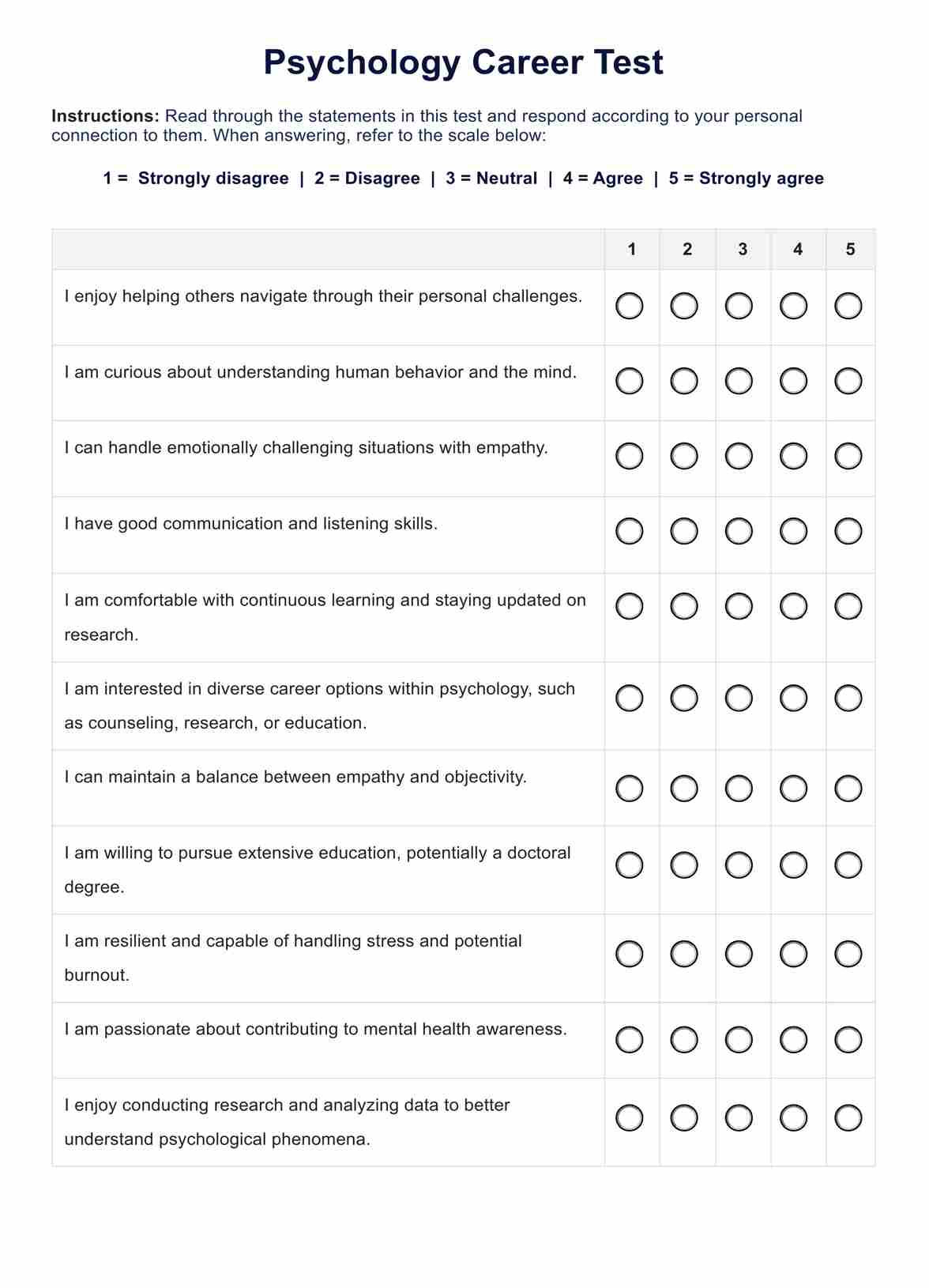There are a range of ways to know if psychology is the right career path for you. You can gauge your interests in the subject through volunteering, research, and internships.

Psychology Career Test
Take this test to determine your suitability in the role of a psychologist. Use this template as a self test or with clients considering new occupational roles.
Psychology Career Test Template
Commonly asked questions
Yes! Psychology can tailor to a range of work loads such as research and independent work that allows introverts to still be a successful psychologist.
It depends where you are located. You should look up your local institute to see the qualifications needed in your area. For example, in New Zealand, to practice as a Clinical Psychologist, you will need a minimum of a Master's degree in Psychology and a Clinical Psychology Diploma.
EHR and practice management software
Get started for free
*No credit card required
Free
$0/usd
Unlimited clients
Telehealth
1GB of storage
Client portal text
Automated billing and online payments











